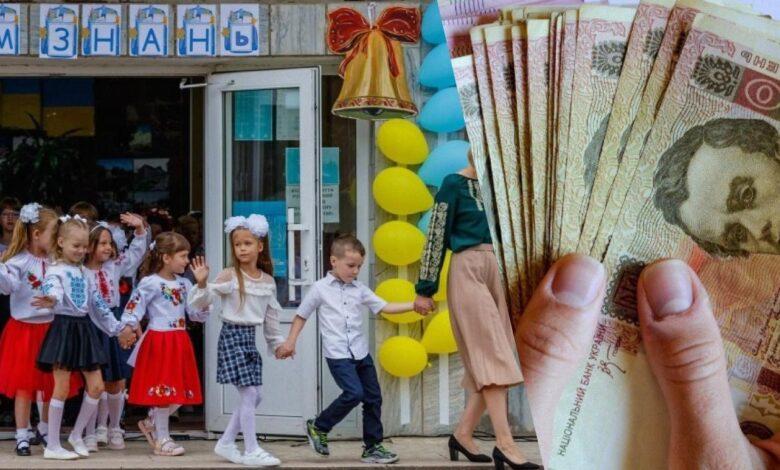Paid educational services during the war: the government changed the list for state and municipal institutions

During a full-scale war, when the survival, protection and support of the most vulnerable come to the fore, the question of the functioning of basic state institutions does not disappear, but becomes even more acute. The education system in the conditions of a protracted conflict is forced to adapt to new challenges: learning in conditions of constant anxiety, power outages, unstable Internet, internal migration and increasing workload on teachers and educators. In this situation, the state is reviewing the tools that can be used to support educational institutions, partially covering their additional costs. One of these steps was changes to the list of paid services that can be provided by state and communally owned educational institutions.
What exactly has changed: the main innovations in the list of paid educational services
These changes do not introduce a fee for basic education, which remains free under the law. However, they expand the opportunities of institutions to receive payment for additional educational and related services — outside the boundaries of standard curricula. The decision of the Cabinet about which reported permanent representative of the government in the Verkhovna Rada, Taras Melnychuk, applies not only to schools, but also to other educational institutions: vocational and technical, higher educational institutions, as well as institutions that carry out scientific, rehabilitation or adaptation activities.
According to the updated government decision, educational institutions received the right to officially provide a number of additional services on a paid basis. It is primarily about teaching individual subjects or courses that go beyond the approved curriculum. For example, if parents want their child to study a second foreign language in depth or master the basics of programming, such an opportunity can be realized for a fee.
The list also includes services related to the official recognition of learning results obtained in informal or informal forms. This is particularly important for adults who have acquired knowledge and skills outside of formal education, such as through work, internships or online courses. Educational institutions get the right to confirm and recognize such results, in particular by passing a qualifying exam.
In addition, educational institutions can conduct additional training or practical activities with further assessment for persons who have received training in foreign educational institutions – for example, in the field of medicine, pharmacy or rehabilitation. This creates a mechanism for the adaptation of foreign-educated specialists to Ukrainian standards.
Extended day groups, weekends and holidays: what will be paid for in preschools
In the changes, special attention was paid to the organization of regular groups for children in preschool institutions. It is about the possibility to leave the child in the group in the morning, evening hours, as well as on weekends and holidays – outside the free time guaranteed by the state. This provision is especially relevant for families in which one parent serves in the Armed Forces, and the other is forced to combine work, child care, and life in difficult conditions.
Such additional hours of stay of children in kindergartens or schools can be provided for a separate fee, which makes it possible to organize additional staff and create conditions for the safe stay of children. However, it is important to emphasize: this is an option, not an obligation. Base hours will continue to be free as required by law.
Science, rehabilitation, adaptation: a wider field of application
In addition to the purely educational sphere, the list also covers services within the scope of scientific and scientific and technical activities, rehabilitation and recreational programs. This applies to both higher education institutions conducting research and specialized institutions working with people with disabilities, children with special educational needs or military personnel undergoing rehabilitation.
Paid services in these areas can include courses, trainings, seminars, expert evaluations, methodological support or preparation of individual programs – all this can also be part of public policy in the period of post-war recovery, when the demand for rehabilitation and adaptation services is growing rapidly.
Additional support or hidden burden: public perception
Updating the list of paid services is a technical decision of the government, which, however, cannot be considered outside the context of the general situation in the country. For some families, this opens up opportunities to access better or broader educational services. For others, the risk of new expenses in the period when every hryvnia is in the account.
At the same time, the very essence of the changes is not to monetize basic education, but to provide institutions with a legal tool to expand their activities and respond more flexibly to the needs of society. The main question is how transparently and fairly these mechanisms will be implemented in specific schools, kindergartens or VET. What will be the control over the quality of services, over pricing, over the prevention of the transformation of voluntary paid programs into a hidden obligation?
Therefore, the government’s decision does not change the guarantee of free education in Ukraine, but it allows educational institutions to respond flexibly to the needs of children, parents and society in wartime conditions. The provision of paid services should be clearly regulated and remain a choice, not a substitute for basic educational functions. In a situation where resources are limited and society’s demands are changing, it is important that these innovations do not become another barrier to access to education, but really help to ensure its quality and sustainability in a difficult period.





